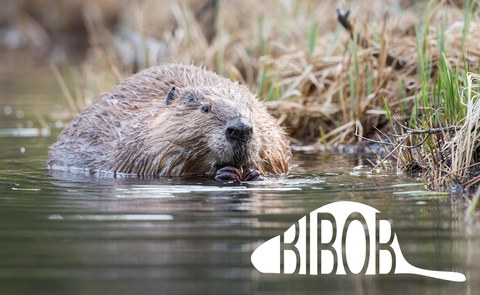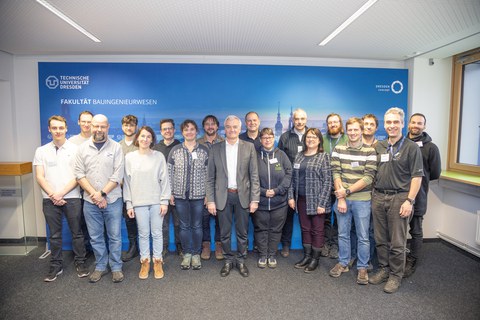Feb 14, 2025
Beavers bolstering climate adaptation - Saxon-Czech research project "BIBOB" launched under the aegis of TU Dresden

By building dams, beavers change the hydrological and hydraulic conditions in smaller watercourses.
In close cooperation with partners from Germany and the Czechia, TUD Dresden University of Technology is launching the innovative and practice-guided research project "BIBOB," which will investigate the role of beavers in climate adaptation. The project is supported by the EU program "Interreg Saxony-Czech Republic 2021-2027" with a grant of EUR 871,764.90.
Beavers are fascinating animals that also play an unmistakable role in environmental and water protection. Their activities can help to stabilize the water balance in landscapes, increase biodiversity and strengthen environmental resilience to the challenges of climate change. The effects of climate change are particularly pronounced in the border region between Saxony and the Czech Republic. The landscapes and ecosystems here are struggling with the changing weather conditions that lead to flooding and, increasingly but perhaps counterintuitively, to severe droughts and devastating forest fires. These changes not only have a dramatic impact on nature, but also on the people who live in these areas.
By building their classic dams, beavers sometimes manage to drastically change the hydrological and hydraulic conditions present in smaller streams or rivers. Beaver dams are an ingenious way of storing water both above and below ground, as well as releasing it more evenly, so that the effects of flooding or droughts can be mitigated.
For the authorities and municipalities, however, beaver activities are not always considered a blessing, as their dam-building can also lead to unwanted flooding or ground displacement.
The absence of necessary data and well-founded arguments as to whether to retain or modify the beaver dams in some way has left municipalities and environmental authorities stumped.
The aim of the BIBOB project (and the cooperation between Czech and German universities and partners from the field) is to quantify the positive contributions of beaver dams to the reduction of environmental risks and, at the same time, to develop tangible and practical recommendations for the management of these dams.

Participants at the kick-off event in the meeting room of the Faculty of Civil Engineering.
The kick-off event for the project took place recently at TU Dresden, complemented by an excursion to the area in question. The first public workshop dedicated the project, in which other institutions and citizens can also participate, is scheduled for June 2025. Keep yourself up to date on the progress of the project on its official website.
Contact:
TUD Dresden University of Technology
Institute of Hydraulic Engineering and Technical Hydromechanics
Chair of Hydraulic Engineering
Project coordination BIBOB
Dr. Torsten Heyer
Tel.: +49 351 463 33874

